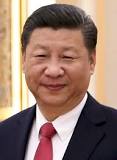China on Thursday said foreign firms operating in the country would suffer in a trade war with the United States, urging U.S. companies to lobby their government to protect their interests.
This is even as the country confirmed that no talks to end the impasse were currently under way.
A news report sourced from Reuters earlier today indicated that South Korea warned that its exports of high-tech components could be hurt as the U.S.-China trade dispute escalates.
As the effects of the trade war take huge toll on the two countries’ economies, Beijing cut its forecast for soybean imports and the Chinese currency fell as worries about fallout from the simmering conflict grew.
Chinese Commerce Ministry spokesman, Gao Feng, told the media during a briefing that Beijing hopes that “U.S. firms can do more to lobby the U.S. government, and work hard to defend their own interests.”
He said that no negotiations between the two sides were going on currently, adding that “the precondition for negotiations is trust. From what I’ve learnt, both sides have not been in touch about restarting talks.”
On Wednesday, Beijing threatened that it would hit back after the Trump administration raised the stakes in their trade dispute, threatening 10 percent tariffs on $200 billion of Chinese goods.
That remained a major heightening of the tensions between the two countries after an earlier round of tariffs just took effect only on Friday.
Market indices showed that while Chinese shares regained Wednesday’s heavy losses, with the Shanghai Composite index rising 2.2 percent, the yuan fell against the dollar following the central bank’s weakest daily fixing in nearly a year and Washington’s fresh tariff threats.
China is yet to make public how it intends to respond after the latest round of U.S. tariffs would bring to $250 billion the total of Chinese goods impacted, once the latest list of duties take effect after a two-month comment period.
Last year, China only imported about $130 billion of U.S. goods, so to retaliate it might increase the size of the tariffs it imposes or resort to what it calls “qualitative” measures, which U.S. businesses fear could mean reprisals against their China operations.
Reuters reported that a survey by the American Chamber of Commerce in Shanghai found that most U.S. businesses operating in China oppose the use of tariffs in retaliation for the challenges they face, from an uneven playing field to poor protection of intellectual property rights.
The tariffs initiated by U.S. President Donald Trump have also drawn criticism from lawmakers in his own Republican Party, as well as from U.S. trade groups worried about higher costs for businesses and consumers.






